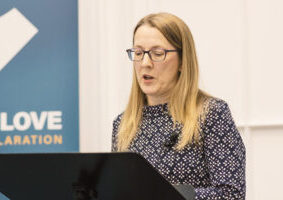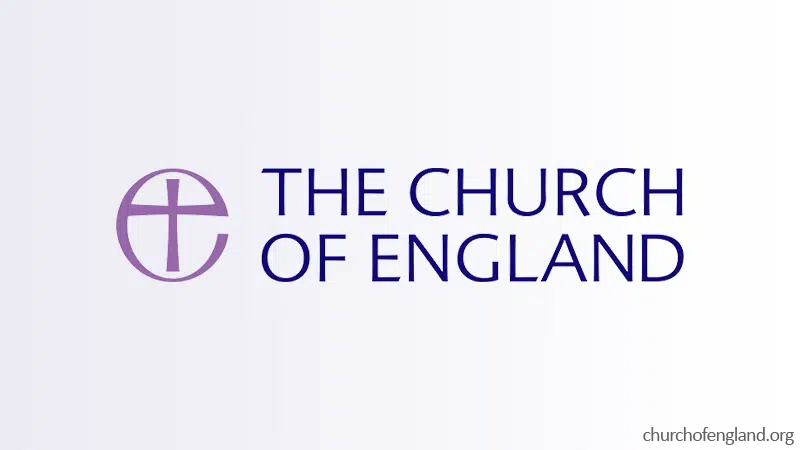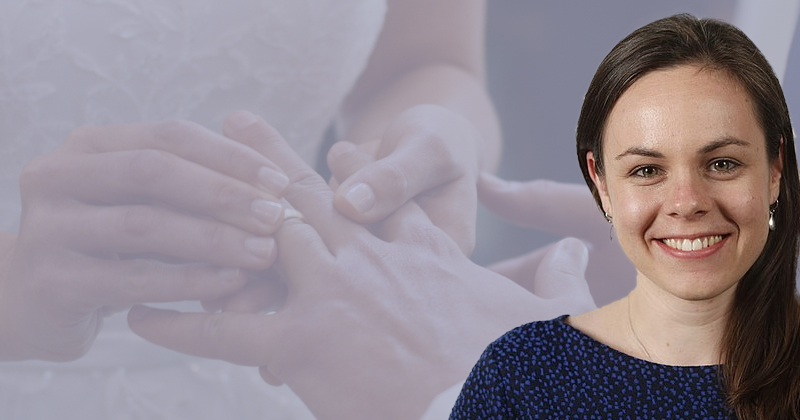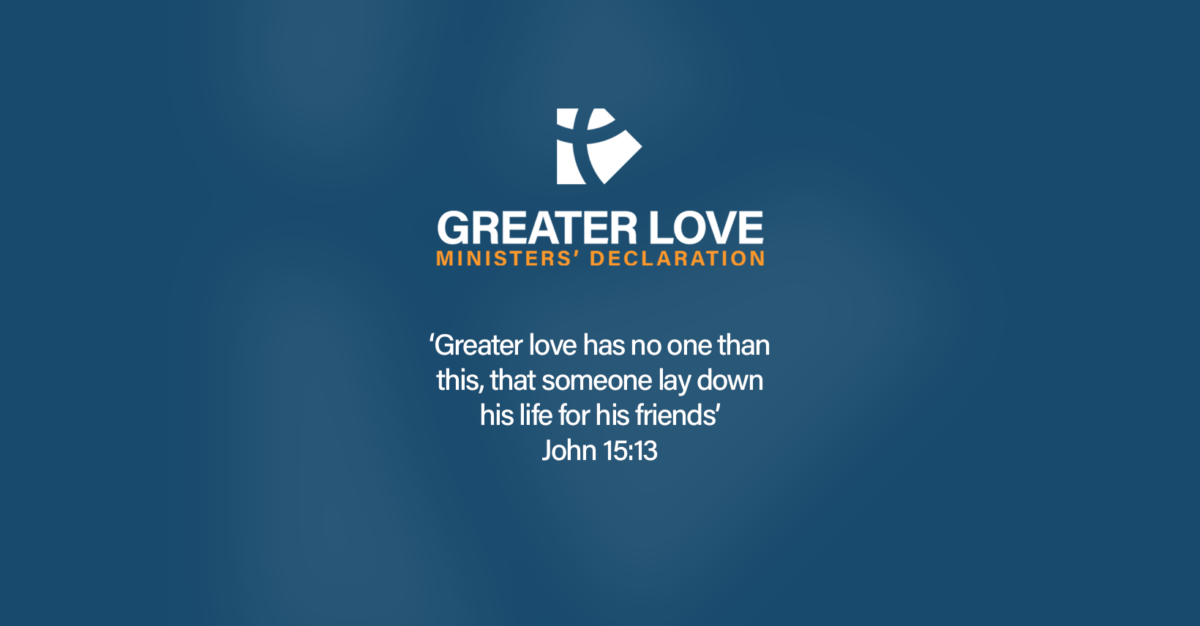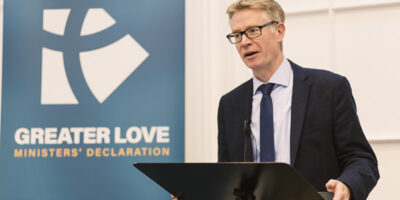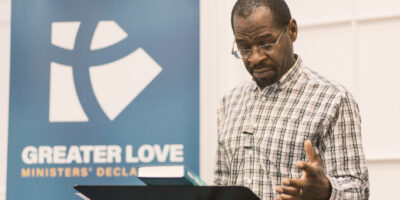“Raising the Shire” – the need for joyful resistance
by Revd Tim Vasby-Burnie
Are we in a culture war? It certainly feels at times like a battle. Blogs and books multiply, ministers nervously work out when to give a preaching series about sexuality, Christians fear what their colleagues might say, social media amplifies the sense of crisis, and grim-faced Christian warriors steel themselves to enter the fray.
Perhaps there is an important weapon missing in our arsenal: the weapon of joy.
Recently I listened to an audio version of The Lord of the Rings and was struck by the joy of the Hobbits as they return to the Shire. In the chapter The Scouring of the Shire they find things have gone badly wrong. Rules and regulations have sapped the life away. The Chief’s men have brought anxiety and dismay to the Shire.
Into this grey, dismal world come the Hobbits, full of colour and life. Pippin tears down the notices and the lists of Rules that are found on every wall. In a memorable scene, the Hobbits are being escorted as prisoners but Merry makes the Shirriffs march in front, while he, Pippin and Sam “sat at their ease laughing and talking and singing, while the Shirriffs stumped along trying to look stern and important.”
Is the church known as a people who laugh and talk and sing? Amidst the chaos of the sexual revolution are we known for our joy or for trying to look stern and important? If the joy of the Lord is our strength (Nehemiah 8:10) then misery and muttering weakens our effectiveness.
We sometimes imagine the world is full of people celebrating sexual licence and we are the ones who need to bring a down-to-earth, serious perspective. Actually, much of our society is full of fear and tension, confusion and hurt. Sin enslaves and damages. The latest gender-theory is nonsensical, ruins lives, spreads misery and will be outdated within a few years.
The church is called to resist the tyranny of sin with the force of joy. We have a divine teacher whose word is clear. We know a Saviour who embraces the broken-hearted and pardons the vilest of sinners. For all their raging, the nations will become the possession of Jesus Christ. Whatever our weakness and apparent defeat, the resurrection will vindicate every act of Christian faithfulness. On Sundays we do not gather as a worry-wearied band of survivors; let us come together to celebrate the victory of Christ, the freedom found in his service, the joyful news that Jesus is Lord. Can we be people who sing with joy even if we find ourselves in a Philippian prison?
The gospel empowers us to be a joyful force for resistance, and our joy may be more powerful at winning people over than the arguments we make, important as they are.
There may also be a place for Hobbit-like mockery of the petty officialdom they find in the Shire. Approaching Frogmorton, the leader of the Shirriffs tells Frodo, “You’re arrested for Gate-breaking, and Tearing up of Rules, and Assaulting Gate-keepers, and Trespassing, and Sleeping in Shire-buildings without Leave, and Bribing Guards with Food.” Sam responds by suggesting the Shirriffs might want to add some more charges: “Calling your Chief Names, Wishing to punch his Pimply Face, and Thinking you Shirriffs look a lot of Tom-fools.”
There is a place for laughing at the exponential growth of gender identities, not because it is amusing – sin is never amusing – but in the spirit of Elijah who mocked the folly of the priests of Baal (1 Kings 18:27). There are times when we might point to the Pride flag, with all the added elements for each identity, and point out the obvious: it is an ugly, incoherent mess. When we hear someone saying ‘a woman is someone who feels like a woman’, can we laugh at the illogical nonsense being said? Sometimes a chortle brings folly to light more effectively than an essay or a rant.
Yes, deep care will be needed. Jesus was able to puncture the pompous pride of preening Pharisees, yet always showed compassion and patience to those hurt by sin and excluded by the religious bigotry of uptight moral policemen. We can laugh at the latest gender woo-woo but must sympathise deeply, with tears, as we talk to those deceived by ideology or struggling with dysphoria. Yet even in those conversations we should talk with joy about our Lord, about his forgiveness, about his welcome, about his liberating truth, about his promise to make all things new. Christians should be people who laugh with joy at the sheer goodness of what God has done for us wayward sinners; we are called to be a people amazed by the mercy, freedom and lasting pleasures we find in Jesus. Here is lasting joy greater than anything found in the world (Philippians 3:1-11).
As the Hobbits approached the Shire, Gandalf the Wizard surprises them by leaving them. “I am not coming to the Shire. You must settle its affairs yourselves; that is what you have been trained for.” It is almost as if the quest, the battles, the destruction of the One Ring, was all preparation.
We tell a story about the greatest quest, the noblest battle and the defeat of sin. This true, good news is training us for our task: the need for joyful resistance to the follies of this world, and the opportunity to present a happy, merry alternative in the kingdom of Christ.

Revd Tim Vasby-Burnie
Vicar of St George of Cappadocia, Shrewsbury



